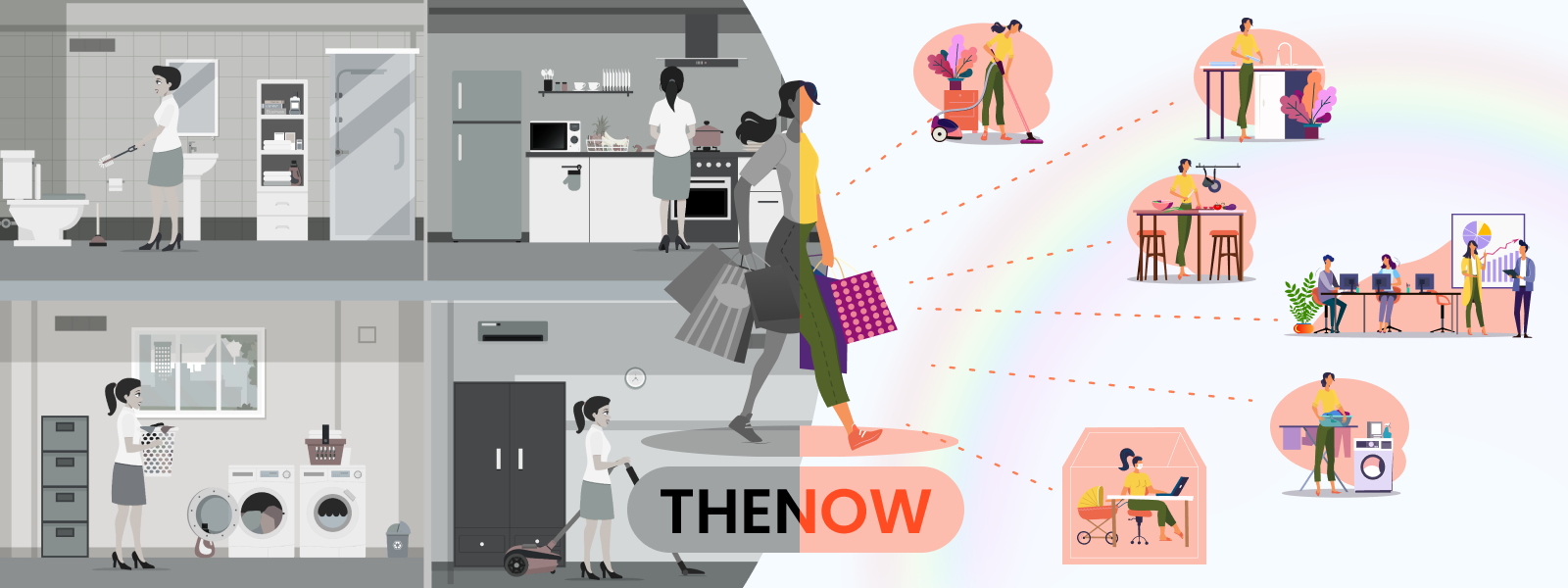Hello, folks! Welcome to our last blog post of the Women’s Day series. We hope you enjoyed our previous posts as we celebrated Women’s History Month.
Since the month is coming to an end, we would like to conclude our Women’s Day series on a good note. This blog post appreciates everyone who has believed in women, supported them, and stood up against the violation of their fundamental rights.
Let’s explore the various areas where society has evolved for women tremendously over the years. And the good news is, it’s getting better by the day.
Birth of a girl child
It all starts when a girl child is conceived. In the earlier days, female foeticide was common because a girl child was considered a financial burden.
With the rise of technology, determining the sex of a child in the womb became possible. Mothers have succumbed to family pressure and aborted their girl children. There are horrific stories of people having taken ruthless steps to get rid of a baby girl before she is born. And it does not end there. Girls are often abandoned or killed by their parents even after they are born, even though female infanticide is illegal. Even today, in some parts of the world, parents who have accepted and raised girls are mocked by society.
Due to repeated awareness programs by the government and NGOs, times have evolved. For instance, in 1994, the prenatal sex determination test was declared illegal by the Indian Ministry of Health and Family Welfare to improve the gender ratio. Female foeticide is a punishable crime in India.
Over the years, mindsets have changed, not just because of the laws but also because people have realized the significance of women. Today, female children are welcomed with open arms. People have also started believing that girls can do as good and even better than boys if given a chance.
Menstruation myths
When a girl is in her adolescent age, her body undergoes hormonal changes, leading to menstruation. Though this is a biological change, it was treated as something abnormal, dirty, and impure. Many widespread superstitious beliefs, stereotypes, and myths around menstruation impacted women’s physical and mental state. Women and girls did not have the privilege of maintaining menstrual hygiene, which resulted in critical infections. People have been attaching negativity to menstruation but take the liberty to relish the positivity that comes out of it.
Fast forward to today, we’re glad that menstruation is not taboo anymore. Society has progressed to look at it as merely a natural process rather than a problem or a disease. Here are some societal changes that we appreciate:
- Advertisements on TV and social media spreading awareness about menstruation.
- School programs to educate students about menstruation and its effects.
- IT companies introducing period leaves for women as a part of their other annual leaves.
Female education
Raise your hand if your mother or grandmother could not complete their education because they had to get married and take care of the house. We hear you. 🙂
In the olden days, women were not allowed to study and excel academically, which has been the norm for a long time. Women were only taught cooking, cleaning, and other household activities that would benefit them post-marriage.
Then came the transition phase, where women were encouraged to get an education. But wait, only education, not a job. Their knowledge was put to use only while helping their kids with homework.
Finally, in recent times, women have achieved the freedom to study, graduate, and pursue a career. More women are encouraged to complete their studies before they get married and have kids. Society has accepted the fact that education liberates a woman, and it is the right thing to do.
On the same lines, we would like to cast light upon the Beti Bachao, Beti Padhao Yojna (Save the girl child, educate the girl child). It is a campaign by the Government of India that aims to generate awareness about and improve the efficiency of welfare services intended for girls in India.
Working women
We cannot say women didn’t work before. They always have. In the earlier days, women managed the house, worked in the fields under the scorching sun, worked for the betterment of the family, and more. They still do. But women back then didn’t have many options, did they? Most of them were not even paid for their work. It was considered a part of their duty towards family.
But nowadays, the narrative has changed. There is a massive transformation in how a woman’s caliber is judged. Society has become more accepting of women’s skills and gives them better opportunities than ever. Today, women have the liberty to choose a career and carve a niche for themselves.
But, does the workplace treat them fairly? Not all the time.
Initially, sexual harassment of women was common at workplaces and but rarely reported. That is not the worst part. Victims of harassment were made to feel embarrassed and guilty for talking about or reporting such acts. It took a toll on women’s health, resulting in anxiety, depression, and other mental issues.
Cut to the current times, women are encouraged to speak up about sexual harassment. To keep women safe at the workplace, the Ministry of Women & Child Development, India, introduced Prevention Of Sexual Harassment (POSH). POSH considers any sexual advances, verbal or physical, illegal. It also gives IT companies the authority to fire and blacklist any employee who violates POSH’s rules. Similarly, the United States, Canada, Europe, and other countries have stern laws against workplace harassment and violence.
Strict actions like these show us the side of society that is kind towards women and works for their welfare.
FYI – The POSH Act holds good for both women and men employees.
Maternity leaves
There were times when pregnant women were expected to stop working. They were advised to take a career break for the child. But if a woman is capable of handling pregnancy, work, and family, then why shouldn’t she? It is totally the woman’s choice to work or not. Unless her health demands a break, she can not only go to work but also go horse-riding. 😀
Thanks to maternity leaves, women can now choose to take time off whenever they feel the need during pregnancy. Different countries have different maternity leave policies. In India, women are entitled to 26 weeks of maternity leave apart from their other leaves. An employer cannot dismiss a woman for taking maternity leave. They can neither serve termination notice for women who are on maternity leave. Employers are considerate of female employees’ contribution and offer them maternity benefits that empower them to work.
These are some common problems that women face (or have faced) across the world. Today, women have great things to look forward to in the areas of education, employment, and even life. That has been possible because of the efforts of not just women but also men who believed in women and fought for their rights. Their support has been exceptional in breaking the norms.
Point to ponder – Now that March is coming to an end, does that mean that we no longer have to give attention to women? Should women be celebrated only on March 8th?
We would like to end this series with this thought – There are many reasons why a woman must be acknowledged every day. Find one, celebrate her.
Stick around for more exciting posts on The Vtiger Blog. Until then, bye-bye!



